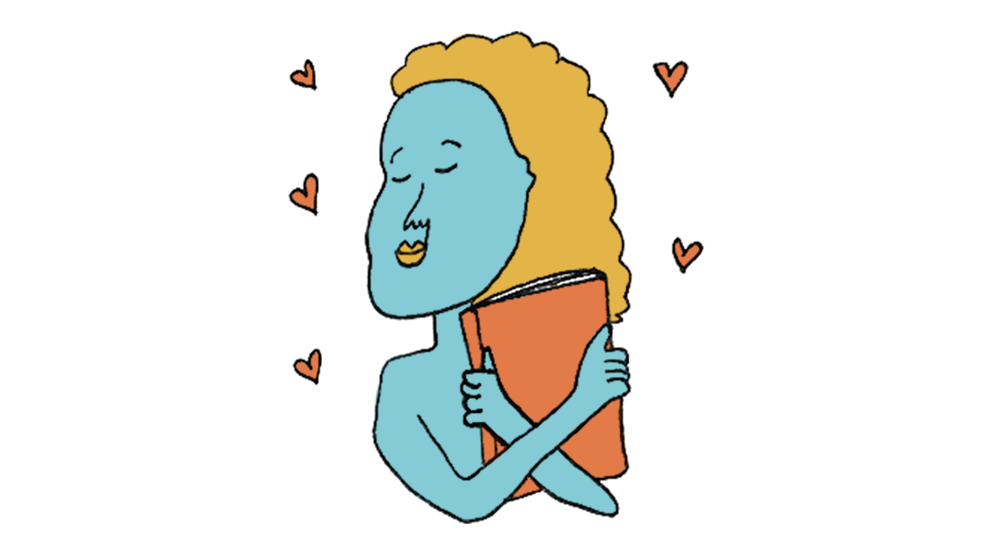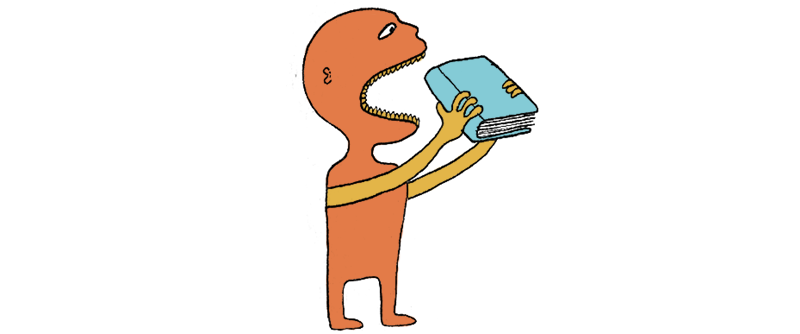It began in the 11th grade in Dr. Hannum’s class on the 19th-century British novel. I was already a Dickens fan. I had read David Copperfield in the tenth grade and liked it so much that I spent the summer between tenth and 11th grades reading Great Expectations, Oliver Twist, and A Tale of Two Cities. But it was Thomas Hardy’s Return of the Native that tipped the scales. I had bought the book for the course so that particular copy I already owned. By the time we had finished reading it, I wanted to own other books like it. Trollope, Thackeray, Austen, Meredith, the Brontës, all the great British novelists who wrote those tomes with complicated, melodramatic plots and dozens of idiosyncratic characters. Whenever I needed a refuge from 20th-century agnst, I would step back into Jane Austen’s Netherfield Park where men wore frock coats and pursued vaporous women, to Anthony Trollope’s Barchester Towers where determined clerics and their ambitious wives maneuvered for power and influence in a rural English diocese, or I would join Sherlock Holmes and Doctor Watson as they tracked their arch enemy Professor Moriarty through London’s fogbound streets. I wanted those books. I needed those books.
By the 12th grade, I had discovered that my passion for books, rather than an illness as some had suggested it was, had, in fact, placed me in some pretty impressive company. Thomas Jefferson, Erasmus, Cicero, and Thomas Aquinas were only four of the millions of famous and not-so-famous figures throughout history who had experienced similar cravings. I learned that the love of books respects neither age nor race nor gender nor religion nor economic status, that its onset can begin as early as the teenage years or late in life, and that there is no known treatment for the condition except to feed it. I also learned that technically I was a bibliophile, a lover of books, as distinguished from a bibliomaniac, someone who indiscriminately accumulates books for the sole fact of possessing them, often with no intention of ever reading them. I wanted books for the knowledge they contained and for the simple pleasure of reading them. Though I was sure my motive was a noble one, I knew deep down that I wasn’t totally symptom-free of bibliomania, for I too, had faced the choice of buying that day’s lunch or a book I had seen in my ramblings through one of the many used bookstores I frequented and opted for the book on the theory that while the hamburger could just as easily be bought the following day, the book I had seen might not be there tomorrow.
Being willing to sacrifice food for a book is only one of the many curious manifestations of how the lust for the printed word can shape a person’s behavior. Another is the changeable nature of the demands book collecting makes. At one time, it will manifest itself as the fascination for a particular historical period or event or civilization — 19th-century Romanticism, for instance, or the American Civil War, or maybe ancient Egypt. In my case, I have gone through periods when I absolutely had to have every book ever written on World War I, not just the historical accounts but the literary ones as well — Wilfred Owen’s poems, Siegfried Sassoon’s Memoirs of a Fox Hunting Man, Edmund Blunden’s Undertones of War — or the expatriate Paris of Joyce and Hemingway or the literary New York of Kerouac and Mailer. My bookshelves have groaned with the combined weight of these decisions. At another time, the desire for books could just as easily focus on the history of airplanes or French cuisine or books on book collecting. And in still another, it will take the form of a life-consuming search for one specific book, such as one of the 12 known extant copies of Edgar Allan Poe’s first published work, Tamerlane and Other Poems, that sold new in the 19th century for 12-and-a-half cents and in the 20th century at auction by Christies for over $662,000. Like many things in life, bibliophilia affects the purse as well as the soul.
In my occasional reflections on what there was about books that so attracted me, I sought answers in the psychology of collecting and found that psychology has much to say about the subject, whether the objects sought are Bibles, bicycles, bird cages, or books. In the January 1, 2007 issue of The National Psychologist, Mark B. McKinley, Ed.D writes:
For some people collecting is simply the quest, in some cases a life-long pursuit that is never complete. Additional collector motivations include psychological security, filling a void in a sense of self. Or it could be to claim a means to distinction, much as uniforms make the “man.” Collections could be a means to immortality or fame vis-a-vis Dr. Louis Leakey.
Shirley Mueller, MD, in “The Psychology of Collecting” from the April 27 issue of MD Magazine, states that “though all collectors seek pleasure when they collect, there are differences in the motivators for each collector.” I knew hunting down and purchasing books definitely gave me pleasure, but what, I wondered, were the motivators, those underlying stimuli that fed my insatiable desire for books?
Sensuality leapt first to mind. Like many bibliophiles, I have often bought a book not solely for what was between the covers but for how the book looked and felt and even smelled. The aromas of morocco leather, the feel of cotton rag paper, and the look of richly marbled endpapers are powerful aphrodisiacs that I am frequently powerless to resist. Of course, if I were searching for a specific book for purely personal reasons — for instance, the Treasure Island with the N.C. Wyeth illustrations that was handed down from my father — I would buy it no matter how it looked or felt. But often it was no more than the thought of how a volume would look on the shelf, perhaps next to The Satyricon of Petronius or War and Peace, that prompted my purchase.
Often I have been seduced by nothing more than the age of a book. I remember a primer on English grammar I once owned that was published in Philadelphia in the 1700s by a publisher still in operation two hundred years later. That book’s brown felt covers, antiquated spelling, and outdated rules of grammar instantly evoking charming images of one-room schoolhouses crammed with Colonial children learning readin’, writin’ and ‘rithmetic was a tangible link to a time when Washington, Jefferson, Madison, and Franklin walked the very streets that I did. And the name scrawled on the inside cover in fading ink established a common lineage between the long-dead owner and myself, a piece of the misty past held right there in my hand.
But, in the end, I suppose that what drives all bibliophiles, myself included, in our mad pursuit of books, is determined by the individual him or herself. On the practical level, some of us simply want to build a library that we can call our own . . . With used bookstores and online sellers hawking previously owned copies of Fitzgerald, Dickens, Tennyson, Tolstoy, or any other author, modern or classic, frequently for as low as three or four dollars a copy, a personal library is within the reach of almost anyone. Think of it: the complete poetry of John Keats, Emily Brontë’s Wuthering Heights or The Annals by Tacitus, in hardcover, available for less than the cost of the latest John Grisham paperback. As an added benefit, the quality of books printed 40 years or more ago is superior to that of most of today’s books with cheaply produced papers and bindings that are destined to self-destruct in a few years.
There are those of us who see in book collecting the chance for financial gain. First editions of William Faulkner’s The Sound and the Fury top $3,000, and a first edition, first printing of Jack Kerouac’s Beat Generation bible, On the Road, in very good condition, goes for $6,000 plus. Investing in books can bring a hefty return, provided you have the resources to begin at all.
While the desire to accumulate knowledge — either directly through careful study or indirectly by having that knowledge at one’s fingertips right there on the bookshelves — is probably still the most common reason for collecting books, some of us see the practice as a way of helping to preserve the past or extending ourselves into the future (when our books with our names on the inside cover are inherited by family or friends or are dispersed among strangers).
Psychologists will ultimately decide whether bibliophilia is a legitimate pathological disorder or just a harmless hobby sometimes taken to extremes. Either way, it’s not unreasonable to conjecture that the practice of collecting the written word probably followed by no more than a few seconds, that moment when a reed in the hand of a Sumerian scribe pressed the first cuneiform imprint into a still-wet clay tablet on the plains of Babylon or scratched across a papyrus scroll in some remote Egyptian desert.
For Cicero, Erasmus, Aquinas, and Jefferson, books were more than simply the results of a pleasant pastime. They were fundamental to their intellectual lives and indispensable companions to their emotional well-being. These pillars of Western philosophical and political thought recorded their reverence for books in language that still fires the imagination:
“A room without books is like a body without a soul.” (Marcus Tullius Cicero)
“When I get a little money, I buy books. If any is left, I buy food and clothes.” (Erasmus)
“Beware of the person of one book.” (Thomas Aquinas)
“I cannot live without books.” (Thomas Jefferson)
Perhaps the most eloquent voice in praise of books was that of Nicolo Machiavelli, the great Italian Renaissance political thinker:
“When evening comes, I return home and go into my study. On the threshold I strip off my muddy, sweaty, workday clothes, and put on the robes of court and palace, and in this graver dress I enter the antique courts of the ancients and am welcomed by them, and there I taste the food that alone is mine, and for which I was born. And there I make bold to speak to them and ask the motives of their actions, and they, in their humanity, reply to me. And for the space of four hours I forget the world, remember no vexation, fear poverty no more, tremble no more at death: I pass indeed into their world.”
Indeed do not we all. •
All illustrations by Isabella Akhtarshenas.






